Saturday, 8 July 2006
Distance 19 km
Duration 3 hours 45 minutes
Ascent 37 m, descent 33 m
Map 27 of the TOP100 blue series (now superseded)
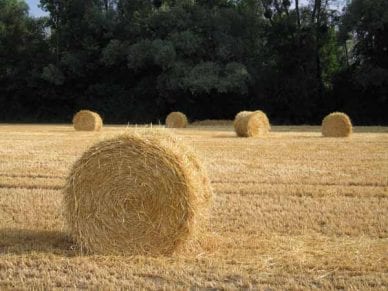
Our New Zealand friends never set off before 10 am, probably because cycling is cooler work than walking, but they stuck their heads out as we were packing at 7. They gave us two nectarines and two kiwi-fruit yoghurts to add to our muesli, showing themselves once again a credit to their nation.
By 7:30 we had crossed the second bridge onto the left bank of the Loire, and turned north along a small road beside open meadows, shaded by the tall trees of the riverbank on our right.
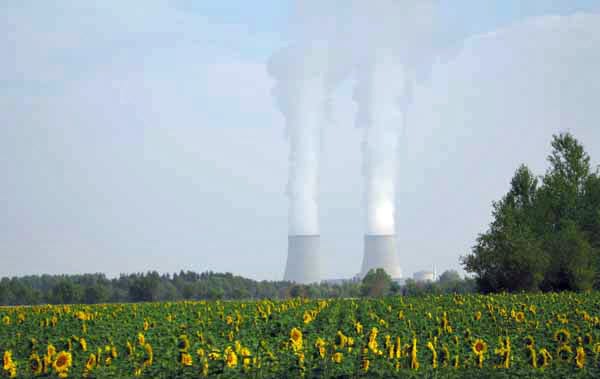
There was nobody about and after a while, at the hamlet of la Madeleine, we left the river and passed between fields of cut hay and sunflowers until we reached the lateral canal of the Loire, which follows the main river as far downstream as Briare and has the advantage of being navigable, unlike the shallow, shifting Loire.
On the way we caught our first glimpse of the monstrous cooling towers of the nuclear power station at Belleville-sur-Loire.
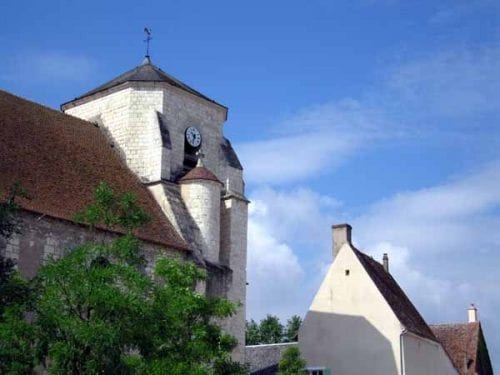
The village of Léré was on the canal and also on the main road. There was a boulangerie and a bar so we were able to have a fine second breakfast on the terrace.
The church was handsome but there was not much else to see. From there we took the road straight to Belleville, as it was not far and there was little alternative.
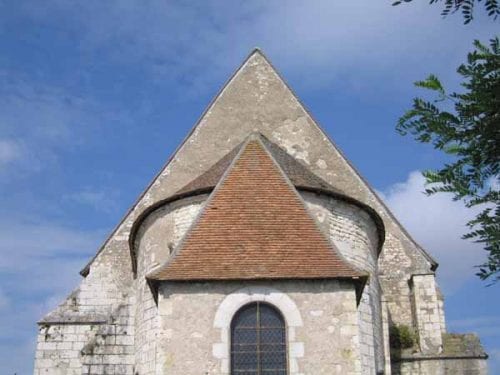
Most of the way there was a footpath beside the road. As we approached we were impressed with the tidiness and prettiness of the place. The banks of the canal were like gardens and even the Office of Tourism was surrounded by roses.
The woman at the desk gave us a map of the village and said that there was a Pub on the canal which served meals in the evening, which was good to know in such a small place as this.
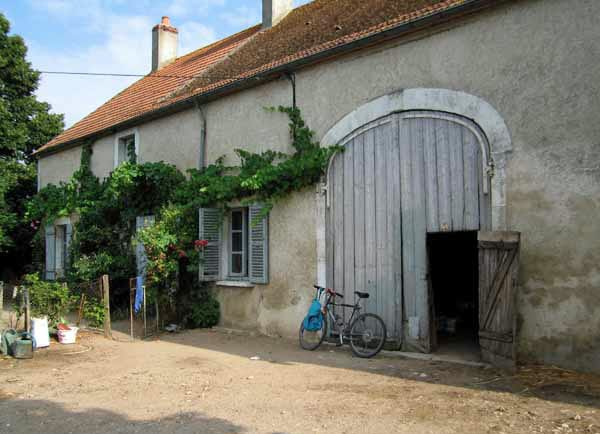
The camping ground was a long walk away, through spotless streets of new, identical houses, not very French-looking and rather puzzling. Arriving at the camping ground, hot and tired, we found the main gate and the office both closed, but we went in by the small gate and threw ourselves down under a tree.
We unpacked and had showers, which were new and excellent. There were signs on the wall informing the campers that they must pay every Monday, another puzzle.
The place was full of caravans but there were no other people, apart from one couple having a barbecue lunch.
Our after-lunch siesta was broken by the arrival of the manager, who had seen us stretched out on the grass and thought we were homeless wanderers (which indeed we were). He was relieved when we said we wanted to camp there for the night, and Keith went with him to the office to fill in the papers.
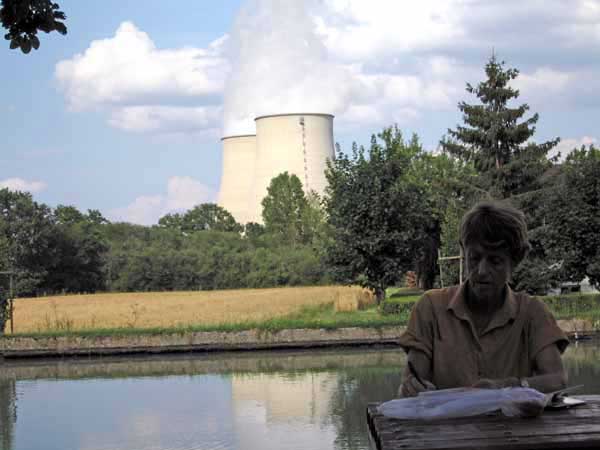
The price was €4 for a tent (much more for a caravan), but he could not even change a €5 note and proceeded to scrunch up all the paperwork, hurling it dramatically in the bin and declaring “C’est gratuit pour les Australiens!” (it’s free for the Aussies).
Presently we returned to the Orwellian prettiness of Belleville and stopped at the supermarket, the only shop in town apart from a boulangerie, to get some fruit for breakfast.
Then we went to the canal and sat on a park bench, watching a lovely old canal boat negotiating the lock. It was a slow process and we had time to have a conversation with its stout, sunburnt owner.
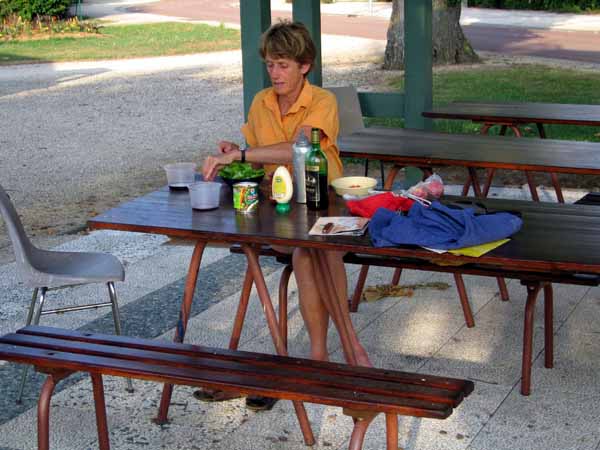
Just before 7 pm we strolled over to the Pub, sat down, ordered drinks and asked what time the restaurant opened. The horrifying reply was that it was closed at weekends!
Without waiting for the drinks, we sprinted away, I to get my foot in the door of the supermarket before it closed, and Keith to go back to the Office of Tourism to remonstrate with the woman about her wrong information.
I had five minutes to assemble the makings of a meal and came out with a tin of peas and carrots, a jar of pasta sauce, some mayonnaise and a bottle of wine. These poor things we took back angrily to the camping ground and dumped on a picnic table.
I borrowed a corkscrew from the French couple, the only other living beings in the place, and drank our health from plastic containers.
For our first course we had salad with mayonnaise, then we had cold peas and carrots swimming in pasta sauce, with the remains of our lunchtime bread and sausage.
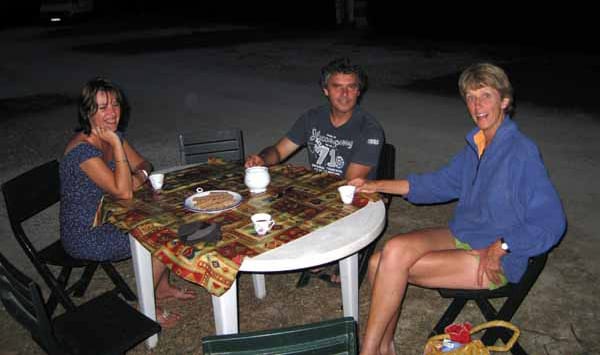
When our neighbours came past to wash their evening dishes, I remarked, perhaps combatively, that the wine was almost as good as Australian wine. They laughed and stopped for a chat, and soon we moved over to their caravan for coffee and cake.
We stayed up talking with these sociable people until 11:15. He was a manager at the nuclear power station and all the caravans belonged to other employees, who went home every weekend.
So did he normally, but this weekend his wife had come to visit him instead, packing the two daughters off to their grandparents in the Gers.
They were from Normandy and had renovated a big old thatched farmhouse there. We saw photos of it and of the daughters. It was this conversation that enlightened us about the oddity of Belleville – it was a dormitory estate for the nuclear power station, not a real village at all.
Previous section: Clamecy to Cosne-sur-Loire